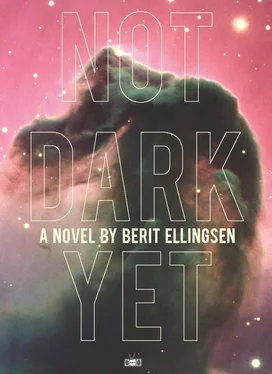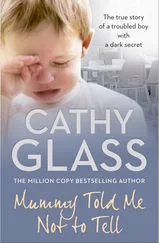When they had been ten and twelve, Katsuhiro had once told him: “We have to like the same things because we’re brothers.”
“Of course we don’t,” he had said, to Katsuhiro’s loud and tearful sorrow. After that it seemed they diverged in most things, especially in relation to their father’s culture. He found he enjoyed its traditional performing arts, architecture, and crafts, although he felt distant from it. Katsuhiro, on the other hand, preferred the country’s widespread popular culture of games, animation, and movies, and spent years learning the language properly and later found work as a translator for computer games and films. He had always been impressed by Katsuhiro’s cultural flexibility while he himself avoided family vacations to both their father’s and their mother’s country as early as he could. First under the guise of participating in various sports tournaments, later to house sit, take summer classes, or work. Only as adults had Katsuhiro and he found a common ground, which they shared in brief and irregular bursts.
When his brother finally hung up and he could put the phone back in the coat, his hand was sore and imprinted with the phone’s corners.

At the university hospital he couldn’t face the mirrored enclosure of yet another elevator, and definitely not one with other people in it, so he took the concrete stairwell, ascending it two steps at a time. As he stood panting in the corridor of the floor Kaye had been brought to, a nurse told him that the assistant professor’s wounds had been disinfected, stitched, and dressed, the patient given a tetanus shot and antibiotics, and sent home.
“Did you really discharge him?” he said. “He lost a lot of blood.”
“The patient was young and healthy and we only do blood transfusions when it’s absolutely necessary,” the nurse said, giving him a pointed look.
He nodded. “I hope the patient didn’t leave all by himself?”
“No, someone came and picked him up,” the nurse said. “Don’t worry, I’m certain your friend made it home safely.”
“Thank you,” he said.
He exited the hospital’s main entrance and headed for the bus stop across the street. On the way there and while waiting for the bus he almost called Kaye twice. Instead, he texted Narayan on the bus home, rested his hands in his lap, and closed his eyes against the glare of the lamps in the ceiling.
At the honeycomb towers, Michael had let himself into the apartment, made dinner for them both, and eaten.
“Sorry I’m so late,” he said, removing his shoes and hanging up his jacket by the front door. “The professor I’ve been working for had to go to the hospital.”
“Is he all right?” Michael said. “What happened?”
He rubbed his face. He felt terrible. “One of the owls attacked him. I guess something must have frightened it.” He went into the bathroom and turned on the faucet.
Michael was a quiet shadow in the doorway. “What about you then, are you all right?”
“Yes,” he said, “just need to clean up a little.” He turned on the tap and washed his hands thoroughly before wiping his face and neck with cool water. “Thank you,” he said, “for making food, and for waiting.” Michael leaned over and hugged him.
Yet later, when Michael was a warm silhouette next to him in the muted shine from the bedroom window, the image of Kaye’s face being torn into by the owl’s talons played over and over in his mind and he wanted to leave the bed, pull the clothes back on as quickly as he could, and run out the door. But then he remembered he was at home, so instead he forced himself to lie still and sweat among the sheets while he listened to Michael sleep inside the stuffy darkness.
The next morning he caught a bus to the old part of the city and walked the short distance from the stop to Kaye’s house. The windows were dark and it was quiet. The mist beaded the smooth triangular leaves that covered the trunk and branches of the monkey puzzle tree like plate mail, the droplets catching the gray light. The air smelled of earth and rain, with an undertone of rot. He pressed the doorbell, heard it ring inside, and waited. If Kaye was in bed, which the professor ought to, it would take time for him to reach the door. He hoped Kaye instead would open the lower right panel in the bedroom window and drop the keys to him, as on earlier occasions. But there were no steps in the stairs, no creaking on the floor behind the door, no window pane that opened. He rang the doorbell once more. Perhaps Kaye was asleep? Maybe he should have called before he arrived? A third ring only brought more silence.
He turned and started on the brief walk back to the bus stop while he dialed Kaye’s number.
“Please leave a message after the tone.”
He called Narayan instead. “Have you seen Kaye today?” he said after he introduced himself. His cheeks and hands were moist from the fog.
“I haven’t,” Narayan said. “I assume he’s at home taking care of himself. At least he should be.”
“How did the owl room look?”
“Awful. I called the university’s cleaning service, but all that blood seemed dangerous so I wiped up a little first, and threw it in the biohazard bin before they arrived. But everything is clean now.”
“What about the owl?”
“I put it in the freezer for dissection later on. Who knows, the bird might have been sick, injured, or had some kind of parasite, which caused the sudden change in behavior.”
He nodded. “Let me know if there is anything I can help with.”
“Not much we can do about the owl now,” Narayan said. “But better it than professor Kaye. How badly was he hurt?”
“I didn’t see the wounds clearly, they had to be cleaned first,” he said. “But I’m certain the owl missed Kaye’s eyes. He wouldn’t have been sent home so quickly if not.”
“Good point. It can’t have been that serious then.”
“I left the camera bag in the owl room, but will pick it up as soon as I can. If Kaye calls tonight, will you let him know I said hello?”
“Of course.”
He downloaded, prepared, and sent the last batch of photos to Kaye’s email account. Then he sent the professor a text message wishing him a good and speedy recovery. He didn’t stop by Kaye’s house, thinking that the professor needed sleep to heal. Instead he went home to the honeycomb towers.
He texted Michael, but there was no reply. Maybe Michael was still at work, preparing mathematical simulations of financial risk that were going to run the whole night. He showered and pulled on the terrycloth bathrobe and slippers he had pilfered from some hotel abroad, padded out to the elevator, and upstairs to the swimming pool. At the time of planning, a pool on the top floor probably seemed like a good idea to draw more buyers to the overpriced apartments instead of a few large and even more difficult to sell penthouses, but now, with the towers built and populated, not many inhabitants seemed to have the time or the inclination to use the large space and water.
As usual at night, the cold unlit room beneath the vaulted glass ceiling was empty, and the water’s surface still. He stepped out of his slippers and left the bathrobe on one of the white plastic chairs furthest away from the pool so it wouldn’t get wet. Then he dove in and swam two laps, fifty meters, under water, with slow, deliberate motions, finishing each arm stroke before starting on the leg stroke. When that was done he crawled fifty laps on the surface, quietly, in the darkness. Afterward, he floated in the water for a long time while he watched the cloud of stars at the center of the galaxy rise above the silhouette of the marsh and the city center in the distance, feeling like every shining point of light moved and lived inside him.
Читать дальше













